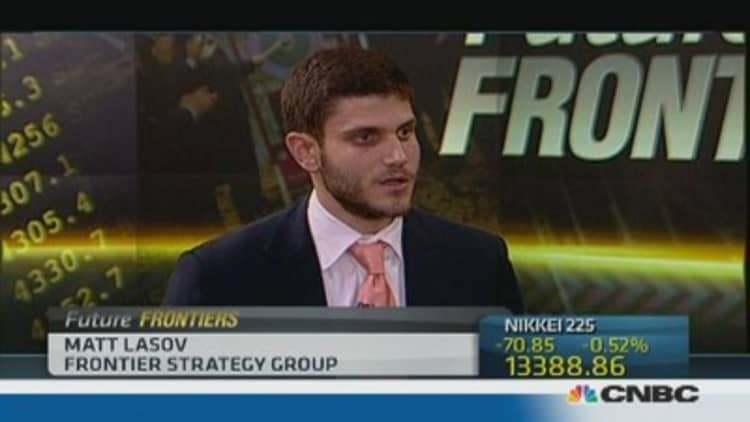Investor interest in Africa tends to focus on commodities and the continent's gold, copper and diamond reserves. But tremendous growth in its technology sector is starting to turn heads and could signal the start of a "silicon Africa" – provided infrastructure catches up with the region's high-tech ambitions.
"We think that there will be tremendous growth in the technology ecosystem overall across Africa", Marcin Hejka, managing director at Intel Capital, the venture capital division of the chipmaker, told CNBC in an email.
"Africa will produce multi-billion dollar companies in the next ten years, and I am very confident in the growth in the continent."
Across Africa, technology hubs, stretching from "Silicon Cape" in South Africa to "Silicon Savannah" in East Africa have sprung up, providing a place for tech start-ups to meet up, swap ideas and grow.
(Read more: Investors uncover a new market—and it's popping)
"This is helping create and develop more savvy entrepreneurs. However given the size of the opportunities in the tech sector, more of these hubs are required," Tobi Oke investment director for Sub-Saharan Africa at Intel Capital told CNBC in an email.
One example of Africa's eagerness to embrace technology is its flourishing mobile phone sector. In a continent where retailers take payment over a mobile phone rather than using cash, and farmers use their handsets to price crops remotely, Africa's cellphone economy it is the fastest growing in the world.

In 2012 there were 650 million mobile subscriptions – more than in the US or the European Union – according to the World Bank.
"The continent offers huge growth potential … almost everyone has a phone, and the broadband access has increased dramatically over the last three years" Hejka told CNBC via email.
And the African consumer is also beginning to rise. "A growing middle class means more disposable income to engage in services and goods beyond 'survival' services" Gregory Rockson, co-founder of African tech start-up MPharma, told CNBC.
(Read more: Morgan Stanley, Abraaj among those seeing big Africa returns)
"Mobile commerce will become a huge part of this change, with many entrepreneurs setting up mobile internet stores to market their goods to the African consumer."
Africa's burgeoning technology sector is set against a backdrop of strong economic growth. The continent has seen 5 percent gross domestic product growth in the past decade, and over the next five years it will growth faster than any other continent, according to the World Bank.

At present the internet contributes just 1.1 percent to Africa's annual GDP growth, but by 2025 this should be at least 5 to 6 percent, according to McKinsey & Company, the global management consulting firm.
However, much needs to be done to nurture Africa's flowering technology ecosystem.
The struggle to find adequate funding is hampering the continent's tech startups. Rockson told CNBC: "Finding access to good … capital is a big challenge. A lot of investments in Africa still go towards the commodities market, real estate etc."
(Read more: Goldman: Stay out of emerging markets)
Africa also remains digitally divided, which could hamper growth.
Huge disparities exist in the development of the internet across Africa. While the internet contributes 3.3 percent and 2.9 percent to GDP in Senegal and Kenya respectively – on par with that of France and Germany – in Nigeria it is just 0.8% according to McKinsey.
This is also evident in the availability of expertise in IT across Africa.
"Several countries have developed excellent information and communication technology strategies and are implementing these but the lack of ICT expertise; especially in the public sector is an impediment to realizing the extraordinary growth potential on the continent," Oke told CNBC.

